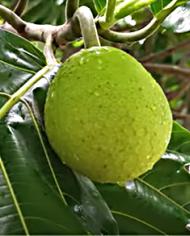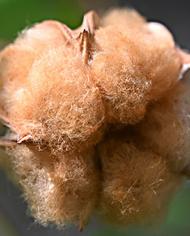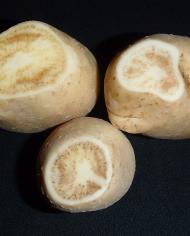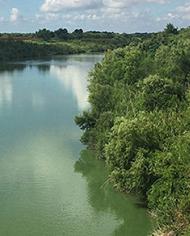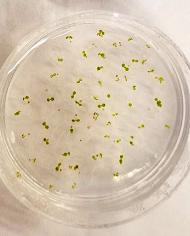U.S. agriculture could save billions by targeting invasive weeds with biological control agents
Tellus Articles
Five-year cover crop study showed greater yields and improved root microbiomes for some plants
Aquaponic systems may help sweetpotato industry and feed ‘urban deserts.’
Researchers bring rosette weevil to bear on yellow star thistle.
Researchers adopt on-site plotting and multi-spectral sensors to gather new data
ARS researchers study the effectiveness of nematodes in reducing a major soybean foe.
A tiny wasp is turning out to be an important ally for one of America’s biggest crops.
Long-term project returns thriving cacao industry to Puerto Rico
ARS researchers found great value and benefits when intercropping oat with pea plants
New project invites researchers to take treatments from the lab to the field.
Breadfruit is a popular fruit in the Caribbean and gaining interest worldwide.
ARS scientists are working with hemp plant seeds in an effort to unlock this plant's amazing nutritional benefits.
Researchers are using breeding and genetics to tackle problems faced by barley and oat growers.
ARS scientists are studying the flame resistance of naturally colored cotton.
Natural pathogen may arrest the pest’s hold on crop fields
ARS researchers are studying ways to protect cacao from diseases that are major problem for cacao production.
ARS scientists are providing growers with a DIY process to fight insect pests.
Scientists in potato country have found many new threats to the nation’s spuds
Researchers develop new method to catalog and share wild plant genomes.
Researchers are identifying new sources of sweetpotatoes, watermelons, and peppers that resist serious pests.
New research sheds light on how plants navigate complex challenges.
ARS researchers and the mango industry are working to develop mangoes that are resistant to anthracnose disease.
ARS scientists are developing methods for testing, controlling, and mitigating boxwood blight.
ARS researchers use genetic panel to improve crop quality and marketability
Website provides season guide to Northern and Midwest growers.
Researchers study the pathways of plant disease – and more – through the air.
See how ARS researchers are using insects to reduce the presence of Arundo, a fast-growing invasive grass.
A new variety of wheat has shown modest improvements in the plant’s ability to withstand drought.
BRIDGEcereal quickly and accurately analyzes genomic data for cereal crops to improve crops.
Unique antibodies found in camels could be used to produce nanobodies that quickly block pathogens.
ARS joins research project to help organisms survive a drier world.
ARS scientist borrows genetics approach to predict impact of changing climate conditions on crops.
In addition to brewing, Kernza can be used in many products as a substitute for traditional wheat.
ARS researchers find answers in the unique biology of the ocean.
ARS scientists are using genetics to keep the Louisiana sugar industry vital.
ARS researchers identify plantain and banana hybrids with resistance to black leaf streak disease.
Researchers and the sugar industry join forces to refresh the environment.
New research aims to stop loss of cacao plant whose "cacao bean" seeds are the source of chocolate.
ARS scientists improve nutrients and add value to rice crop.
ARS makes managing cropland easier for growers worldwide.
It's estimated that in 2020 growers suffered $100 million in losses due to Impatiens necrotic spot virus.
New wheat and barley offer higher yield, greater disease resistance and increased nutritional value.
ARS team fights blueberry virus to help growers keep fruit on the shelves.
ARS researchers are using a bioplastic coating to naturally shield seeds from dangerous fungi.
Where can you find reliable information on the medicinal uses of herbs and plants?
Researchers are helping growers fight diseases of hemp and mitigate the damages they cause.
Drones can provide rapid, large-scale evaluations of crop health to save time and improve production.
Broccoli microgreens contain higher amounts of phytonutrients and minerals.
ARS researchers are developing new colorful rice varieties with improved nutrition and taste.
ARS researchers are developing new lines of tomatoes to counter the damaging anthracnose disease.













